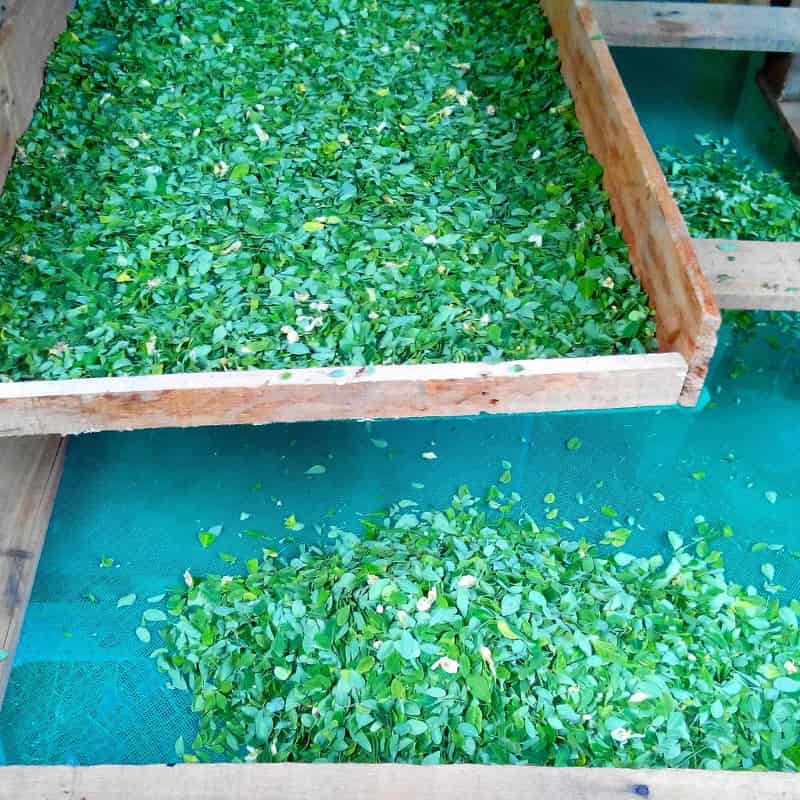The protective effect of moringa peptides against colon cancer
Moringa oleifera Lam. leaf peptides have been studied for their possible anticancer effect in colon cancer cells at the Center for Research in Food and Development (CIAD).

Research conducted at the Center for Research in Food and Development (CIAD) has analyzed the potential anticancer activity of Moringa oleifera Lam. leaf peptides in colon cancer cells.
Peptides are chains of amino acids that can be generated by the enzymatic digestion of proteins. Some of these may have diverse bioactive potentials. Due to the physiological fate of peptides, the most appropriate study model is colorectal cancer, whose main drivers are exposed to free radicals and the continuous presence of macrophages associated with inflammatory stimuli.
In this sense, anticancer peptides can function as preventive agents, by being cellular antioxidants and reducing inflammation, and as treatment agents, by functioning as cytotoxic molecules with antiproliferative capacity.
Historically, anticancer peptides have been obtained mainly from legumes and cereals. However, these sources contain proteins that cause food allergies. Therefore, it has been suggested to look for other plant sources with high protein content. This requirement is met by the Moringa oleifera leaf.
As part of her academic training as a doctor of science at CIAD's Culiacán Regional Coordination, Sara Avilés Gaxiola, under the direction of research professor José Basilio Heredia, conducted a study with the objective of determining whether peptides generated from moringa can function as preventive or treatment agents on colon cancer cells.
For this purpose, moringa leaves were collected from a commercial orchard in Imala, Culiacán, Sinaloa, from which flour was obtained and from which protein was extracted, and peptides were subsequently generated through a gastrointestinal simulation in the laboratory.
The generation of peptides was verified through electrophoresis and their sequence was determined by means of the Nano LC-MS/MS technique. Based on the above, 14 peptides were found and their effect was evaluated in a culture of healthy colon cells (CCD18co) to determine the concentration at which there is no toxic effect.
Subsequently, the antioxidant activity of the peptides was evaluated on the colon cancer cell line, and a decrease in the cellular oxidative activity of up to 71% was found. The mechanism of action is associated with their ability to inhibit peroxyl radial and electron-donating capacity, which was determined by spectrophotometric methods. Furthermore, the peptides reduced by up to 15% the production of nitric oxide (a proinflammatory agent) by macrophages.
After comparing these results with those reported in the existing scientific literature, the antioxidant activity demonstrated by the moringa peptides is considered to be high, being associated with a cytoprotective effect. On the other hand, at this concentration the peptides showed no cytotoxic effect on the Caco-2 cell line; moreover, it was observed that the proliferation of these cells decreased by 90%.
According to Avilés Gaxiola, the results of this research show that moringa peptides could have the potential to function as a preventive agent for this disease, especially for their cellular antioxidant effect, and as a treatment agent, for their capacity to inhibit cell proliferation; however, further studies are needed to confirm the findings.
Regarding their antioxidant potential, she explained, it would be of interest to evaluate whether these peptides have the capacity to increase the expression of the most important enzymes of the cellular antioxidant defense system: glutathione peroxidase, superoxide dismutase, and catalase.
The CIAD student commented that, regarding the anti-inflammatory potential, in addition to nitric oxide, there are other markers of chronic inflammation associated with the development of colonic cancer cells, such as overexpression of cyclooxygenase 2 and overproduction of prostaglandin D2, so evaluating the effect of the hydrolyzate on these molecules would help determine its true potential.
Finally, she also pointed out that it would yield important information to elucidate the mechanism associated with the antiproliferative effect of the peptides. In this sense, it would be ideal to use molecular techniques to evaluate the expression profiles of cyclin-dependent kinases, which would make it possible to see at what stage of the cell cycle the cells are arrested.
Author: Sara Avilés Gaxiola, Ph.D. student at CIAD, and José Basilio Heredia, research professor at CIAD.




